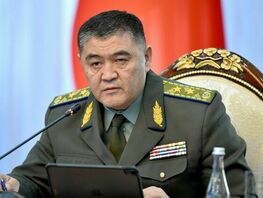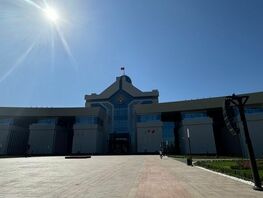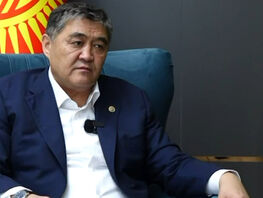Teresa Ribeiro, Representative of the Organization for Security and Cooperation in Europe (OSCE) on Freedom of the Media, speaking at the 24th Central Asia Media Conference in Bishkek, said that over the past months the OSCE has clearly stated its position on freedom of the press, expression and other fundamental freedoms and human rights in connection with the developments in Kyrgyzstan.
She recalled that the fundamental principles of freedom of expression and the media are enshrined not only in the purposes of the UN Charter, the Universal Declaration of Human Rights, the International Covenant on Civil and Political Rights, international human rights documents and the constitutions of the Central Asian countries. They also serve as vital driving forces to achieve the Sustainable Development Goals and the vision set out in the agenda until 2030, a key priority for all states in the region.
Free media and open civic space are essential not only for democracy. They are also essential for prosperity, economic growth, inclusive and sustainable development.
Teresa Ribeiro added that states and societies that value freedom of expression and encourage diversity of views can support creativity and innovation, create a favorable environment for the development of new ideas, products and services, stimulate entrepreneurship, new employment opportunities and equal access to them.
«I heard this directly from many private sector representatives, not only in Bishkek, but also in several regions which I recently visited. Entrepreneurs shared their concerns about the potential impact of restrictions on the media and the internet, job creation and economic growth, for example by limiting the promotion of goods and services through social media platforms. Moreover, a diverse and inclusive media landscape also helps society to leave no one behind that is the motto of the Sustainable Development Goals, as it allows underrepresented or vulnerable groups whose voices may otherwise go unheard, such as local women leaders, minorities, youth or people with disabilities, become part of the national dialogue,» the OSCE Representative stressed.
Free and pluralistic media can help promote social justice and equity and create opportunities for all people in Central Asia to participate in the sustainable development of their countries.
Teresa Ribeiro
She noted that policy that stimulates economic growth or national development programs will face significant obstacles if media freedom and civic space in general are weakened.
Teresa Ribeiro pointed out that free speech can deal with misinformation.
«Although this is not an absolute right, we must remember that it can only be limited on the basis of the principles of legality, necessity, proportionality and non-discrimination. Restrictions that do not meet any of these criteria are potentially illegal. Nevertheless, states choose restrictive policies too often,» she said.
The OSCE Representative on Freedom of the Media once again reminded: freedom of opinion and expression is an indispensable condition for the full development of the individual, the foundation of any society that strives for growth and development.
Recall, according to the law of Gulshat Asylbayeva «On Protection from False (Inaccurate) Information», the Ministry of Culture, Information, Sports and Youth Policy blocked the website of Radio Azattyk at the end of October 2022. The reason was the video material by Current Time media outlet (a subordinate structure of Azattyk Media) about an armed clash on the border with Tajikistan. Later, the Ministry of Culture filed a lawsuit for the complete cessation of Azattyk’s activities in Kyrgyzstan. In April 2023, the Leninsky District Court of Bishkek, by its decision, terminated the activities of Azattyk Media institution.






